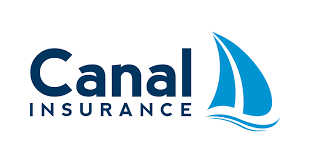Private Placement Life Insurance is a good option for families and high-income individuals; who want to convert highly inefficient taxable assets into tax-efficient investments (PPLI). PPLI is an insurance product that allows policyholders to access alternative investments in a tax-advantaged structure.
Private Placement Life Insurance
Families with a tax aversion and a preference for tax-inefficient investments or investment strategies are ideal candidates for Private Placement Life Insurance (PPLI). Individuals, irrevocable trusts, and limited liability companies who own PPLI must meet the accredited investor and qualified purchaser requirements.
Because the strategy includes life insurance, medical insurability in need; otherwise, insurance costs can eat into the tax savings benefits, making the strategy less appealing. However, if medical issues make purchasing life insurance impractical, consider PPLI’s close cousin, the Private Placement Variable Annuity.
What is Private Placement Life Insurance
Private Placement Life Insurance is a type of life insurance; that is designed to have a high cash value in comparison to a low death benefit. To reduce fee drag, the life insurance component is kept as low as possible; allowing the policy’s cash value to ultimately drive the death benefit.
Related Articles: CONSTRUCTION ACCIDENT ATTORNEYS NYC: Hiring Guide
The goal of Private Placement Life Insurance is to quickly accumulate significant cash value; within a life insurance policy in order to benefit from the tax-free treatment of income and gains; from the policy’s underlying investments.
It is essentially a variable life insurance policy that allows you to allocate to alternative investments; that are not available in more traditional variable universal life policies.
Where Can I Get a Private Placement Life Insurance Policy?
Because the primary goal of PPLI is not to reduce estate taxes, many investors will own these policies directly; within their taxable estate. Owning Private Placement Life Insurance in an Irrevocable Trust is certainly possible and preferred; if sufficient assets are available that are not subject to federal and state estate taxes.
For clients who want to leave a significant portion of their assets to a private foundation at death; but aren’t ready to give up personal access to those assets, investing through PPLI or PPVA can expedite; the process of effectively making those assets income tax-free. The value of the death benefit paid to charity, which has grown tax-free, will also pass estate tax-free.
Related Articles: Is Teeth Whitening Covered By Insurance?| Cost of Teeth Whitening
Another is in collaboration with a Grantor Charitable Lead Trust (CLT). When you fund a CLT, you can take an immediate tax deduction in exchange for including; the CLT’s income in future years on your personal tax return. A PPLI or PPVA policy can reduce the flow-through income back to you; allowing you to take advantage of the upfront deduction while avoiding the ongoing phantom income.
Why (Not) Consider a Private Placement Life Insurance?
One of the key requirements for meeting IRS PPLI guidelines is that the policyholder relinquishes; investment control over the underlying assets.
There are numerous investment options available in the form of commingled funds; on each carrier’s platform, from which a policyholder can select. Furthermore, some insurance companies allow for managed accounts. In these cases, you can select from a variety of strategies and investment objectives, but not individual holdings.
If the IRS determines that you, the investor, have too much control; the PPLI will be treated as if it never existed, and all income tax benefits will be lost. A hands-on investor who is hesitant to hand over control of a portion of their investment portfolio; may struggle to accept this strategy.
Private Placement Insurance Carriers
PPLI is not suitable for everyone. A good candidate for this strategy is someone with a million-dollar annual income; a net worth of $20 million or more, or who owns a business that puts them in that category.
Life insurance provides a number of significant tax advantages; which can be significant considerations for those in the highest tax brackets. However, standard life insurance policies available from your local agent do not include hedge funds; and other alternative investments that these investors require for diversification and investment needs.
Related Articles: Best Farmers Insurance Review 2022
The concept is to combine the financial benefits of highly taxed hedge funds and similar investments; with the tax benefits of life insurance. There are insurance and administrative costs associated with the life insurance contract; but the tax savings in a properly structured life insurance policy, combined with the death benefit itself; more than offset the additional insurance and administrative costs. And, in most cases, the insured can access the majority of the funds tax-free through policy withdrawals and loans.
When a wealthy investor in a high tax bracket wants to invest in hedge funds anyway; it often makes sense to set up a privately placed life insurance policy to protect the individual from taxation.
Qualifications for Buying Private Placement Life Insurance
While a variable universal life insurance policy can be purchase by anyone, PPLIs are an unregistered securities product. Also, in the end, the owner is usually an individual or a trust. Holding the policy in an irrevocable trust allows the insured to keep the policy out of their taxable estate; potentially reducing future estate tax liability, though they give up rights to the cash value prior to death.
Related Articles: CONSTRUCTION ACCIDENT ATTORNEYS NYC: Hiring Guide
In reality, the average Private Placement Life Insurance candidate or family possesses the following characteristics:
- A substantial net worth
- The ability to fund at least $1 million in annual premiums for several years; $3 million to $5 million is typical.
- A desire for exposure to hedge funds or alternative investments
- Investments that are extremely tax-inefficient
- In addition to federal income taxes, states and municipalities levy high income taxes.
- A desire to keep assets out of the hands of creditors
It’s critical to be able to make a significant investment over the first several years because; this initial premium investment “primes the pump,” which means that if the underlying investment subaccounts perform well; the insured’s policy can become self-funding.
How does life insurance through private placement work?
Privately placement life insurance is typically designed as a variable universal life insurance policy, which means:
- Premiums are adaptable. Policyholders are free to pay as much or as little premium as they want, whenever they want.
- Each month or year, the cost of insurance is deducted from the cash value in the policy subaccounts.
- In order to keep the policy in force, the owner must pay enough premium to keep; the cash value high enough to cover the cost of insurance.
- The policy will lapse if the cash value reaches zero.
Related Articles: ROOFING TOOLS: 25+ Essential Equipment and Tools for Roofing
The policy is typically structured by the agent, who sets it up to maximize cash value accumulation; while keeping the death benefit relatively low. Working with their insurance professional, the policy owner then pays as much premium into the policy as possible each year.
The client benefits from the life insurance contract’s significant tax advantages:
- Death benefits to heirs are tax-free.
- Cash value growth that is tax-deferred
- Dividend growth that is tax-free (if applicable)
In the meantime, the insured retains access to accumulated cash values; which can be used for any purpose and accessed at any age. There are no penalties for withdrawing the cash value prior to reaching the age of 59 1/2; as there are with annuities and individual retirement accounts (IRAs). Furthermore, unlike annuities, IRAs, and retirement accounts, there are no required minimum distributions.
Private Placement Life Insurance Companies
Vendors are frequently recommended by professional wealth managers. BlackRock, Wells Fargo Private Banking, John Hancock, Zurich, Crown Global; Pacific Life are among the most prominent providers of Private Placement Life Insurance services and insurance-dedicated funds (IDFs).
The Top 8 Advantages of Using Private Placement Life Insurance as a Flexible Investment Tool
Policyholders of private placement life insurance receive the following eight benefits:
1) A tax-favored investment platform — Private Placement Life insurance combines the powerful tax advantages of life insurance with the ability to invest in hedge funds; other sophisticated asset management offerings.
2) Lower fees— Private Placement Life Insurance typically has lower fees, commissions, and other costs than retail insurance products.
3) No surrender fees— Policies can be surrendered at any time without incurring surrender fees; which are common in retail life insurance policies.
4) Simplified tax reporting — Private Placement Life Insurance removes many of the annual reporting burdens associated; with hedge funds, such as K-1s.
Related Articles: Best HIX Insurance Review: Products and Features
5) Avoidance of “phantom income” — Because earnings accumulate tax-free, investors avoid paying taxes on income that isn’t distributed to them.
6) Estate planning benefits — Clients can increase the benefits of wealth transfer and charitable planning strategies.
7) Tax-free policy exchanges — Using a tax-free IRC Section 1035 exchange; investors can convert existing life insurance policies into a PPLI.
8) Improved creditor protection — Life insurance policy values cannot be claimed by creditors if properly structured.
Conclusion
Finally, it is critical to locate a private placement insurance investor who can provide financing; that is best suited to your company’s objectives. If you want to issue a private placement, Pricoa Private Capital can help.
Frequently Asked Questions
What is meant by private placement?
A “private placement,” as the name implies, is a private alternative to issuing or selling publicly-traded securities; as a means of raising capital. A private placement involves the offering and sale of debt or equity securities between a company; or issuer, and a small group of investors.
What is PPLI policy
PPLI is a type of life insurance that is designed to have a high cash value; in comparison to a low death benefit. It is essentially a variable life insurance policy that allows you to allocate funds to alternative investments; that are not available in more traditional variable universal life policies.
Can you put real estate in a PPLI?
PPLI is a type of insurance policy that is similar to universal life insurance. It enables the policyholder to invest in securities or other alternative investments, such as real estate while deferring taxes.
Is private placement good?
Private placements can provide superior execution relative to the public market for small issuance sizes; as well as greater structural flexibility for public companies. Savings: A company can often issue a private placement for a much lower all-in cost than a public offering.





